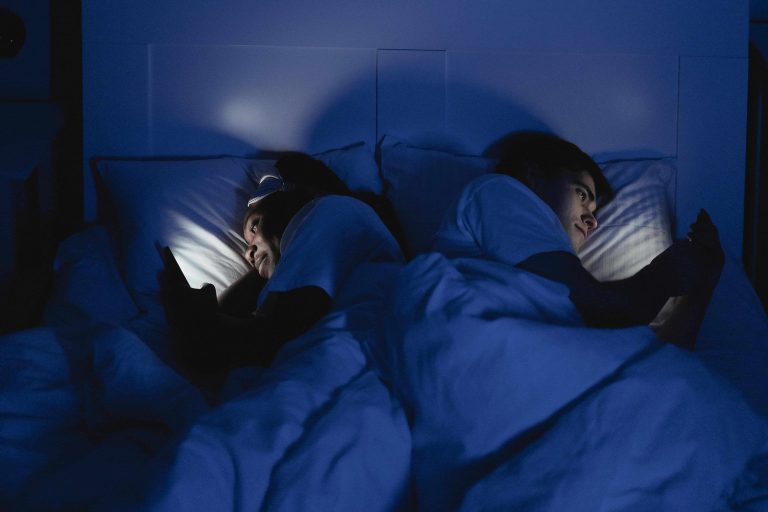Sleep is one of the absolute foundations of our health and performance. Yet for many people, falling asleep and staying asleep is a nightly struggle. Here are 8 proven steps to build a solid nighttime routine and dramatically improve your sleep quality.
What Makes an Effective Nighttime Routine for Better Sleep?
An effective nighttime routine focuses on preparing both the body and brain for sleep. This means lowering stimulation, supporting natural circadian rhythms, and creating an environment that encourages deep, uninterrupted rest.
The steps below are evidence-based habits that work together to improve sleep onset, sleep quality, and recovery when practiced consistently.
1. Heating Up to Cool Down
Engaging in passive body heating, such as taking a warm bath or shower before bedtime, can improve sleep quality. A systematic review and meta-analysis found that bathing 1–2 hours before bedtime in water between 40–42.5°C (104–108.5°F) was associated with improved sleep efficiency and quality. This practice helps by facilitating a decline in core body temperature, which is conducive to sleep initiation (1).
Action: Take a hot shower or bath 1-2 hours before bed.
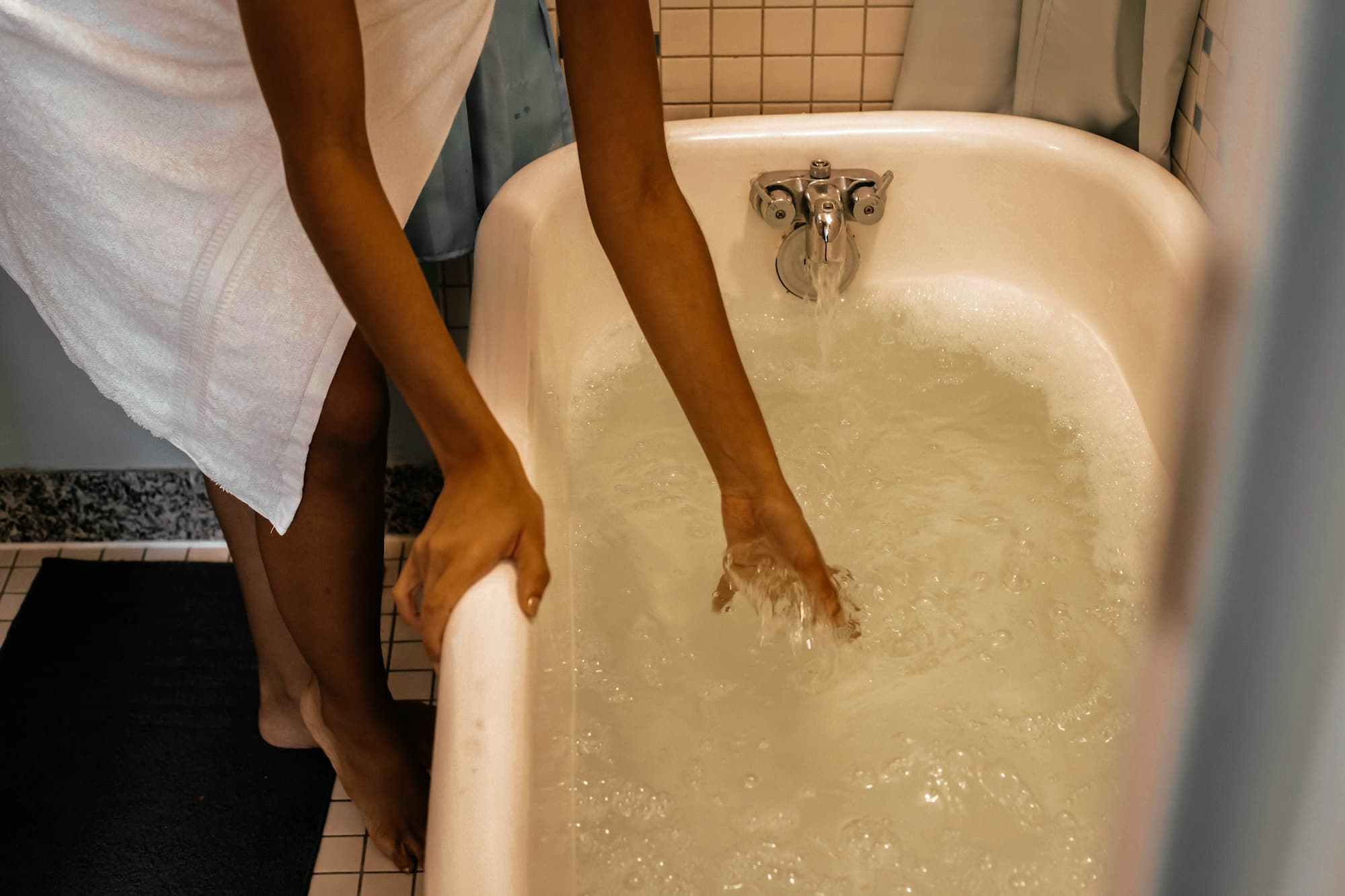
2. Creating a Dark Sleeping Environment
Light exposure during sleep disrupts your sleep cycles (2). Creating a dark environment by using blackout curtains or eye masks can promote better sleep by reducing disturbances caused by light exposure. Additionally, ensure that no artificial light sources, such as electronic devices or night lamps.
For maximum comfort and darkness, try HAKD HEALTH’s silk, full wrap-around blackout eye mask.
Action: Use blackout blinds or an eye mask to ensure complete darkness.
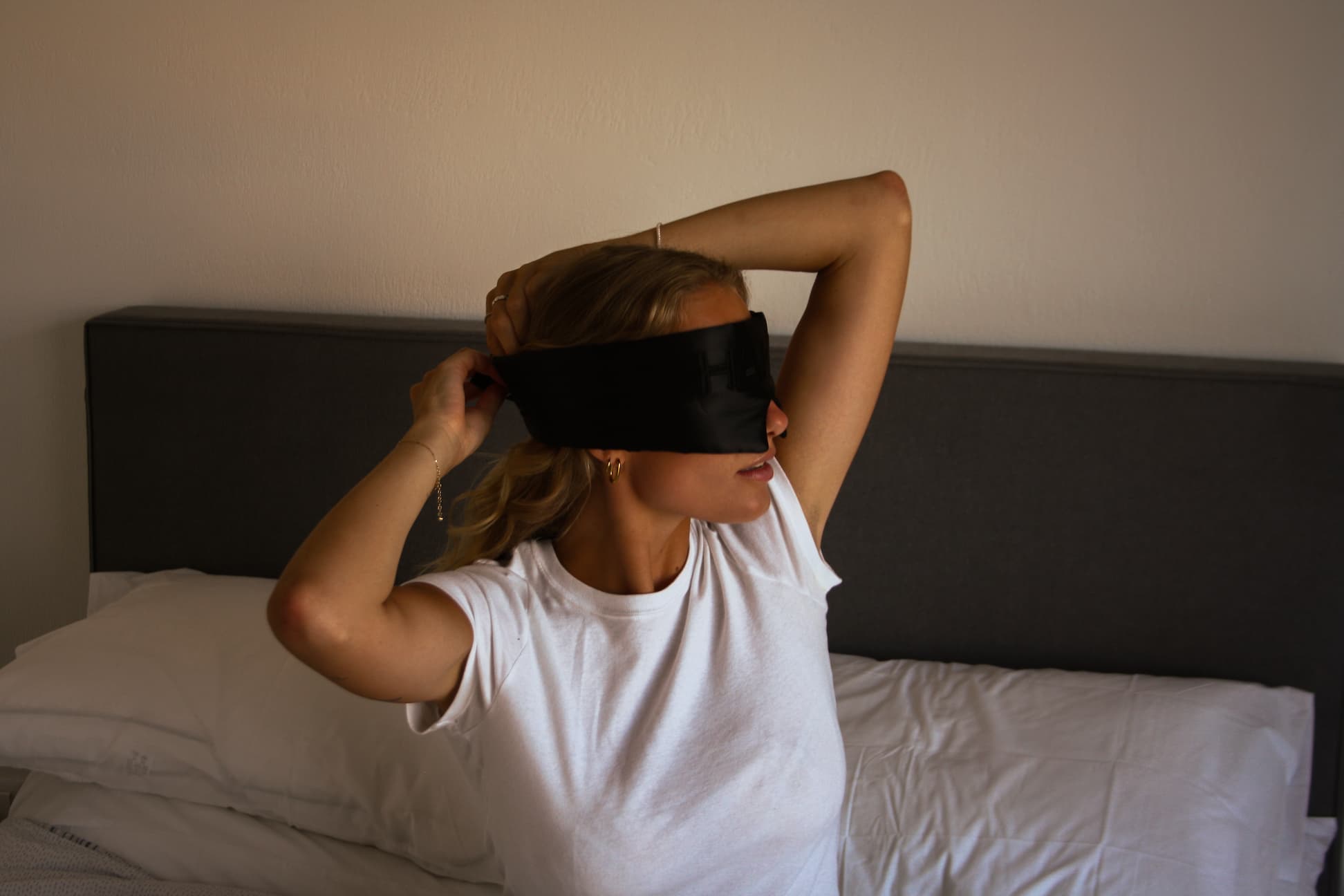
3. Maintaining A Consistent Sleep Schedule
Establishing a regular sleep schedule by going to bed and waking up at the same time daily reinforces your body’s natural circadian rhythm. Consistency in sleep and wake times has been shown to improve sleep quality and overall health.
Research indicates that irregular sleep schedules can negatively impact sleep quality, leading to increased daytime sleepiness and impaired cognitive function (3).
A systematic review concluded that regularity in sleep patterns with consistent bedtimes and wake-up times is favourably associated with health outcomes (4).
Additionally, research indicates that greater consistency in sleep across nights relates to better health and performance (5).
Action: Keep the same sleep and wake times 7 days a week.
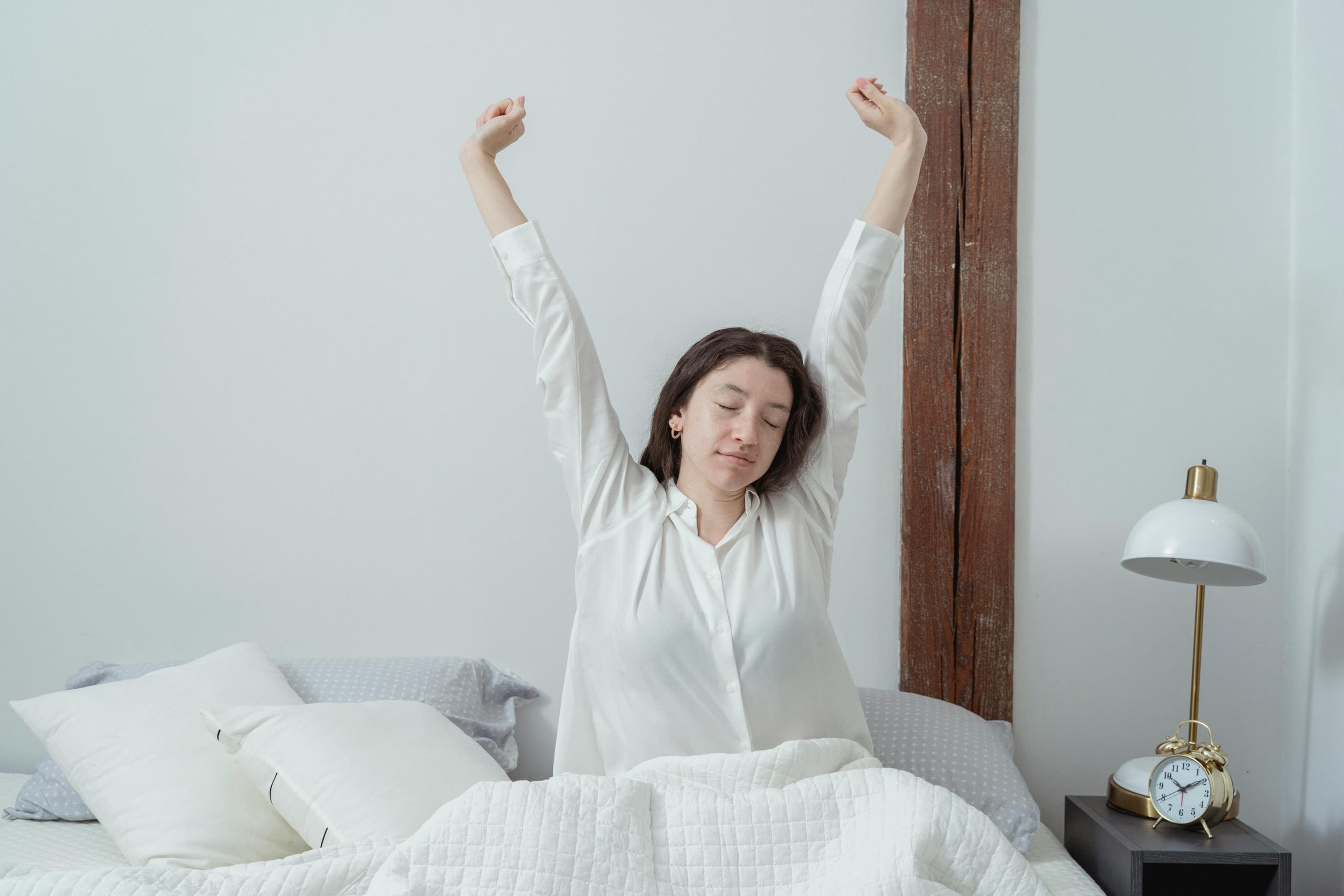
4. Limiting Alcohol Consumption
While alcohol may initially have a sedative effect, consuming it before bedtime can disrupt sleep later in the night. Research indicates that alcohol consumption before bed can lead to fragmented sleep and reduced rapid eye movement (REM) sleep, which is crucial for cognitive functions and overall restfulness (6).
There’s no safe amount of alcohol for sleep. Even small amounts have a negative effect.
Action: Reduce or eliminate alcohol. Try starting with alcohol free days.
5. Limiting Blue Light Exposure Before Bed
Exposure to blue light, particularly from electronic devices, can disrupt sleep patterns. Blue light suppresses melatonin production, a hormone that regulates sleep-wake cycles, leading to increased sleep latency and reduced sleep efficiency. A systematic review found that blue light exposure before bedtime can decrease sleep efficacy and increase sleep latency (7).
Use blue-light blocking glasses or enable night mode on all devices, and aim to shut screens off at least an hour before bed to promote better sleep quality.
Action: Turn off screens 1 hour before sleep. If you must use them, use blue-light blocking glasses to help limit exposure.
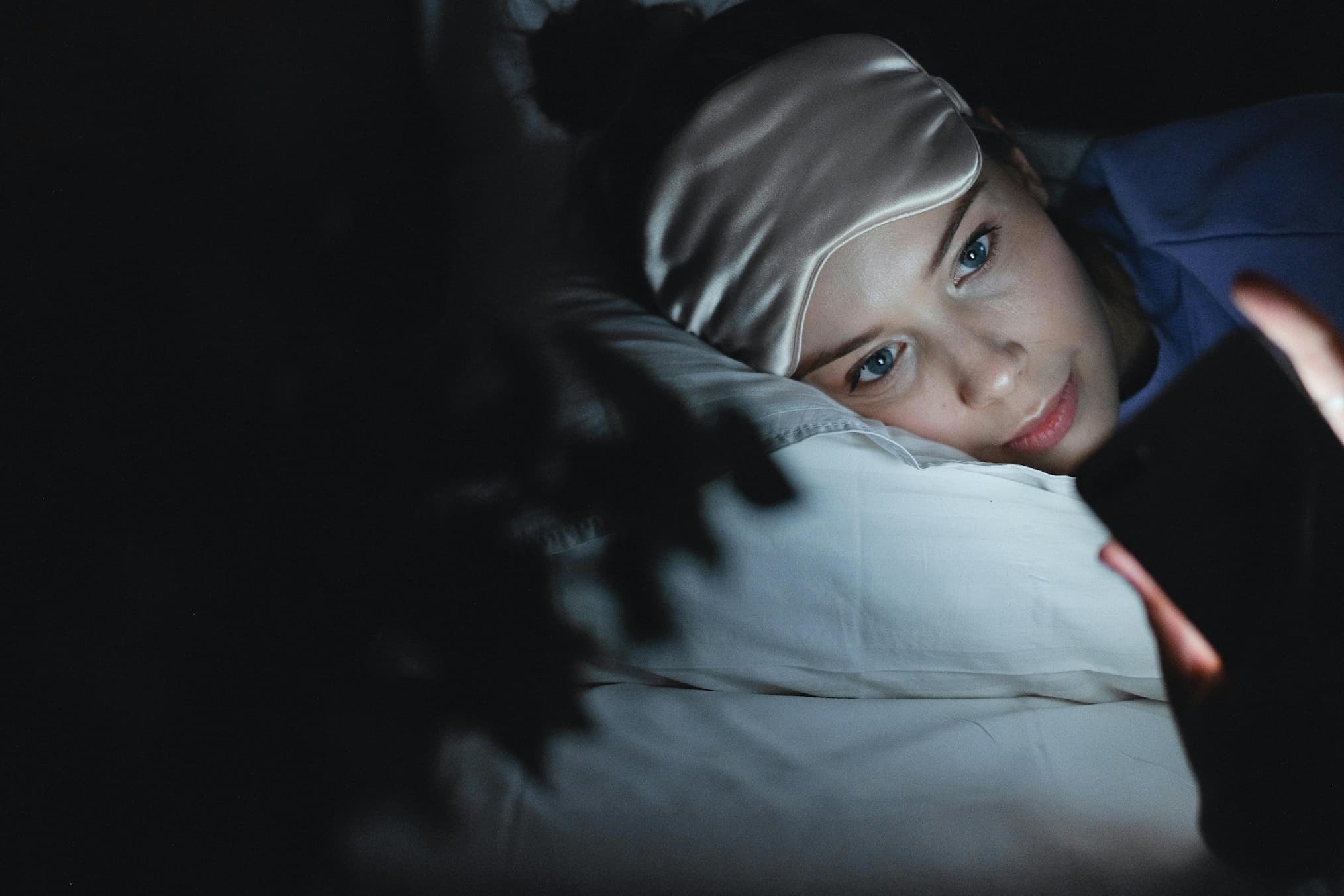
6. Managing Caffeine Intake
Caffeine is a stimulant that can adversely affect sleep when consumed later in the day. A systematic review and meta-analysis concluded that caffeine intake reduces total sleep time by approximately 45 minutes and sleep efficiency by 7%, while increasing sleep onset latency by about 9 minutes (8).
In simple terms, that means it takes you longer to fall asleep, and you sleep less for being in bed the same amount of time. Avoid consuming caffeine in the late afternoon and evening, and opt for alternative caffeine-free options.
Action: Stop caffeine at least 8 hours before bed and switch to decaf.
7. Timing of Food Intake
The timing of meals can influence sleep quality. Eating large meals close to bedtime can disrupt sleep by causing discomfort and affecting digestion. Data from the National Health and Nutrition Examination Survey found that later meal timings and increased meal frequency are linked to diminished sleep quality (9).
Action: Limit eating to 3 main meals per day.Have your last meal at least 2 hours before bedtime.
8. Natural Supplementation
A well-rounded nighttime routine isn’t complete without targeted supplementation to support deep, restorative sleep. Chamomile tea and lavender oil are common household remedies, but the right combination of natural ingredients can help you relax, fall asleep faster, and improve overall sleep quality and quantity.
Hakd Health’s Night Blend is designed to optimise sleep naturally, promoting relaxation and recovery through its unique, 15-ingredient, leading formula. Fall asleep faster. Stay asleep longer. Wake up feeling fully recovered.
Action: Ready to transform your sleep? Try HAKD HEALTH’s Night Blend today.

References:
- (1) Haghayegh, S. et al., (2019). Before-bedtime passive body heating by warm shower or bath to improve sleep: A systematic review and meta-analysis. Sleep medicine reviews, 46, 124-135. https://doi.org/10.1016/j.smrv.2019.04.008
- (2) Marina R Sweeney, et al., (2024). Exposure to indoor light at night in relation to multiple dimensions of sleep health, Sleep, 47(2), https://doi.org/10.1093/sleep/zsad100
- (3) Kang, JH., Chen, SC., (2009). Effects of an irregular bedtime schedule on sleep quality, daytime sleepiness, and fatigue among university students in Taiwan. BMC Public Health 9, 248. https://doi.org/10.1186/1471-2458-9-248
- (4) Chaput, Jean-Philippe et al. (2020). “Sleep timing, sleep consistency, and health in adults: a systematic review.” Applied physiology, nutrition, and metabolism, https://doi.org/10.1139/apnm-2020-0032
- (5) Faris M Zuraikat, Brooke Aggarwal, Sanja Jelic, Marie-Pierre St-Onge, (2024). Consistency is key: sleep regularity predicts all-cause mortality, Sleep, 47(1). https://doi.org/10.1093/sleep/zsad285
- (6) Colrain, I.M. et al., (2014) “Alcohol and the sleeping brain.” Handbook of clinical neurology, 125, 415-31. https://doi.org/10.1016/B978-0-444-62619-6.00024-0
- (7) Silvani, Marcia Ines et al., (2022). “The influence of blue light on sleep, performance and wellbeing in young adults: A systematic review.” Frontiers in physiology, 13. https://doi.org/10.3389/fphys.2022.943108
- (8) Gardiner, Carissa et al., (2023). “The effect of caffeine on subsequent sleep: A systematic review and meta-analysis.” Sleep medicine reviews, 69. https://doi.org/10.1016/j.smrv.2023.101764
- (9) Yan, Li-Ming et al., (2024). “Chronobiological perspectives: Association between meal timing and sleep quality.” PloS one, 19. https://doi.org/10.1371/journal.pone.0308172


